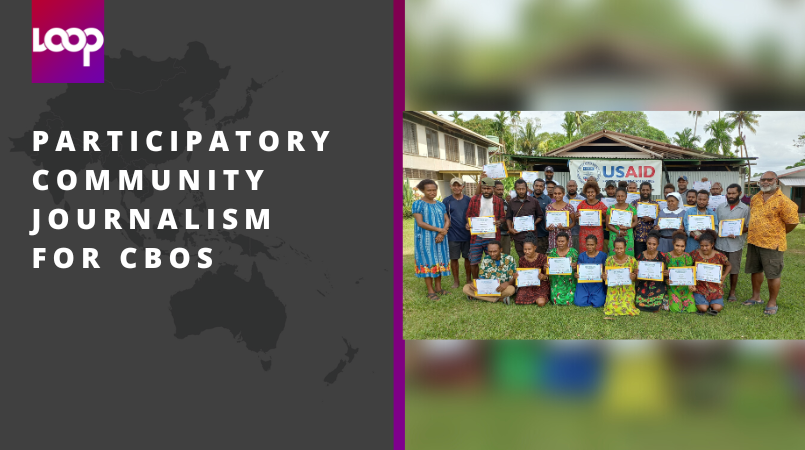
A two-week training course held this month ended on a high note with 32 participants from Sumkar District’s Community Based Organizations (CBOs) graduating with certificates.
The intensive training was conducted from the 7th to the 18th of August on Participatory Journalism an initiative of MAKATA (Mas Kagin Tapani), a registered not-for-profit advocacy group established in April 2009.
The main reason for its establishment was to sustain the Sea Turtle Restoration and Protection Project (STRP) which was established in 2006 in Madang by Wenceslaus Magun.
Mr Magun had secured a grant from the US AID under the Lukautim Graun Program (LGP), which aims to protect Papua New Guinea's rich biodiversity, which is under increasing threat from industrial development, population growth, and other anthropogenic factors.
The 32 participants represent various CSOs, CBOs, churches, schools and other groups from mainland, Karkar Island & Bagabag Island that also advocate for change and environmental issues in the Sumkar region.
The training was facilitated by Wenceslaus Magun and Martha Louise, a professional journalist at the St. Therese Convent in Alexishafen of Madang’s North Coast.
With Mr Magun’s fundamentals in place, Ms Louise’s journalism skills come into play by teaching the participants ethics of journalism, camera skills, editing videos, writing scripts, all in all, a mini journalism package for the participants.
This is in the hope that they grasp these skills in order to utilize them in their programs back in the villages.
All participants were given a smartphone each, funded by USAID, to create campaigns for their CBOs. They all have learned how to create their own Gmail, YouTube, and Facebook accounts to upload their creations.
The participants were encouraged by Mr Magun during the graduation ceremony, to uphold the values taught to them throughout the two weeks of training, and to continue in their CBO endeavours.
USAID representatives, Jayanne Mailai, Livelihood/Project Coordinator from Madang Office and Leila Perembo, Budget Officer for Small Grants Program flew in from Port Moresby to witness the event.
Mailai commended MAKATA for the effort in winning the grant and for running the training. She also congratulated the participants and challenged them to provide reports so that their office could assess the outcome of the training.
All participants were grateful for the opportunity given to them in achieving their goals and efforts. They all thanked their facilitators and USAID, who had their representatives present with their certificates.
MAKATA is an organization established to formally recognize efforts Wenceslaus Magun and his community facilitators and volunteers have been doing since June 2006 to protect and restore the declining population of the critically endangered Leatherback Turtles (Dermochelys Coriacea).
MAKATA aims to continue its current programs in working with coastal communities in the Bismarck and Solomon Seas to restore and protect the critically endangered Leatherback Turtles and incorporate new goals and objectives as well based on community needs.
Their goal is to get the people and communities through a process to think and work out what they can do to address these issues and to develop action plans to move forward.
Mr Magun continues to ensure the program is sustained. Much of the money obtained to run MAKATA comes from his taxi service in Port Moresby, and small grants from TNC, WWF, UNDP-SGP, Santa Monica Sea Food and WiseFish, and others.
Using these small grants and income MAKATA facilitates Marine Environment Educational Awareness Programs, Media Campaigns, Community Development Trainings, Resource Mapping, Boundary Surveys, Marine Monitoring Training, Turtle Training, Convention on Biological Diversity Training, Land Use Planning for villages in the Sumkar and Rai Coast Districts.
